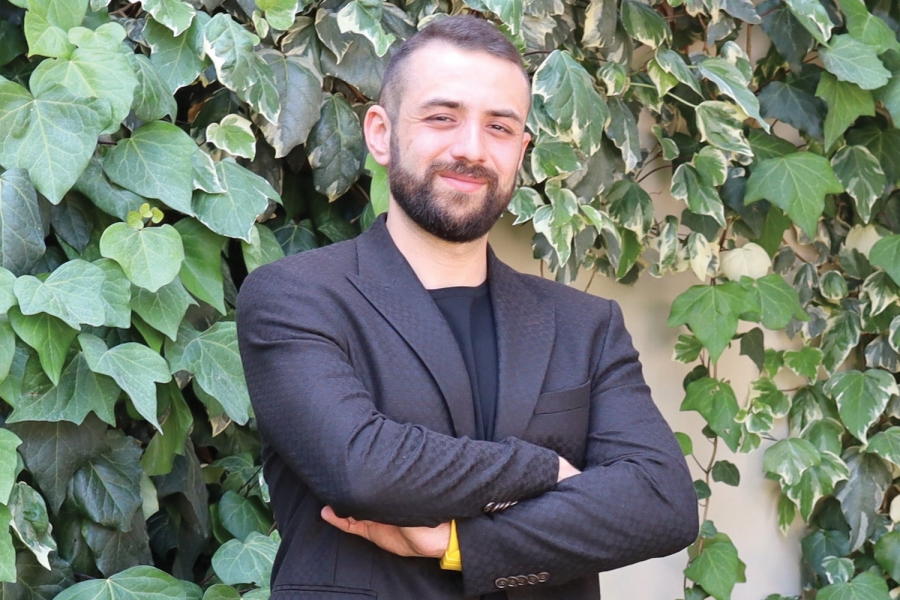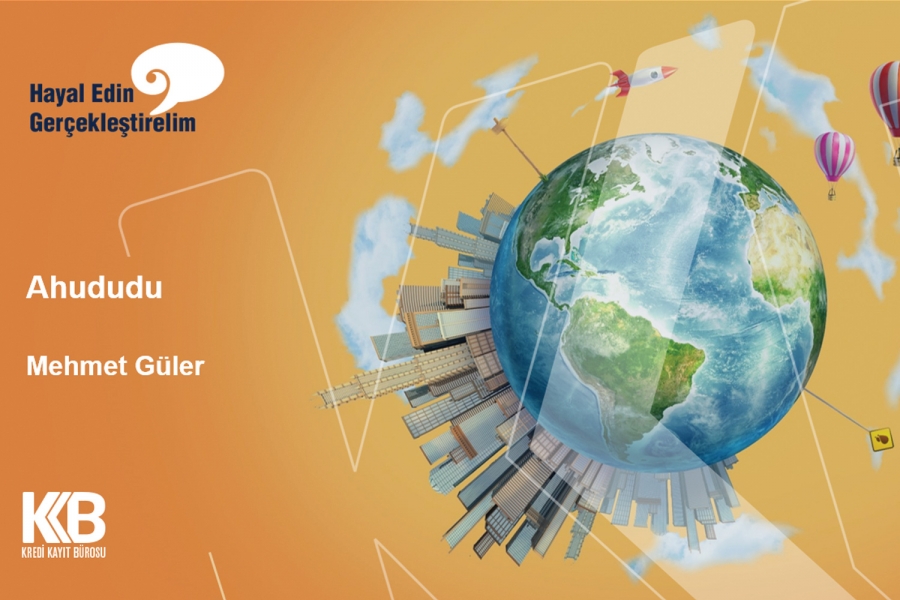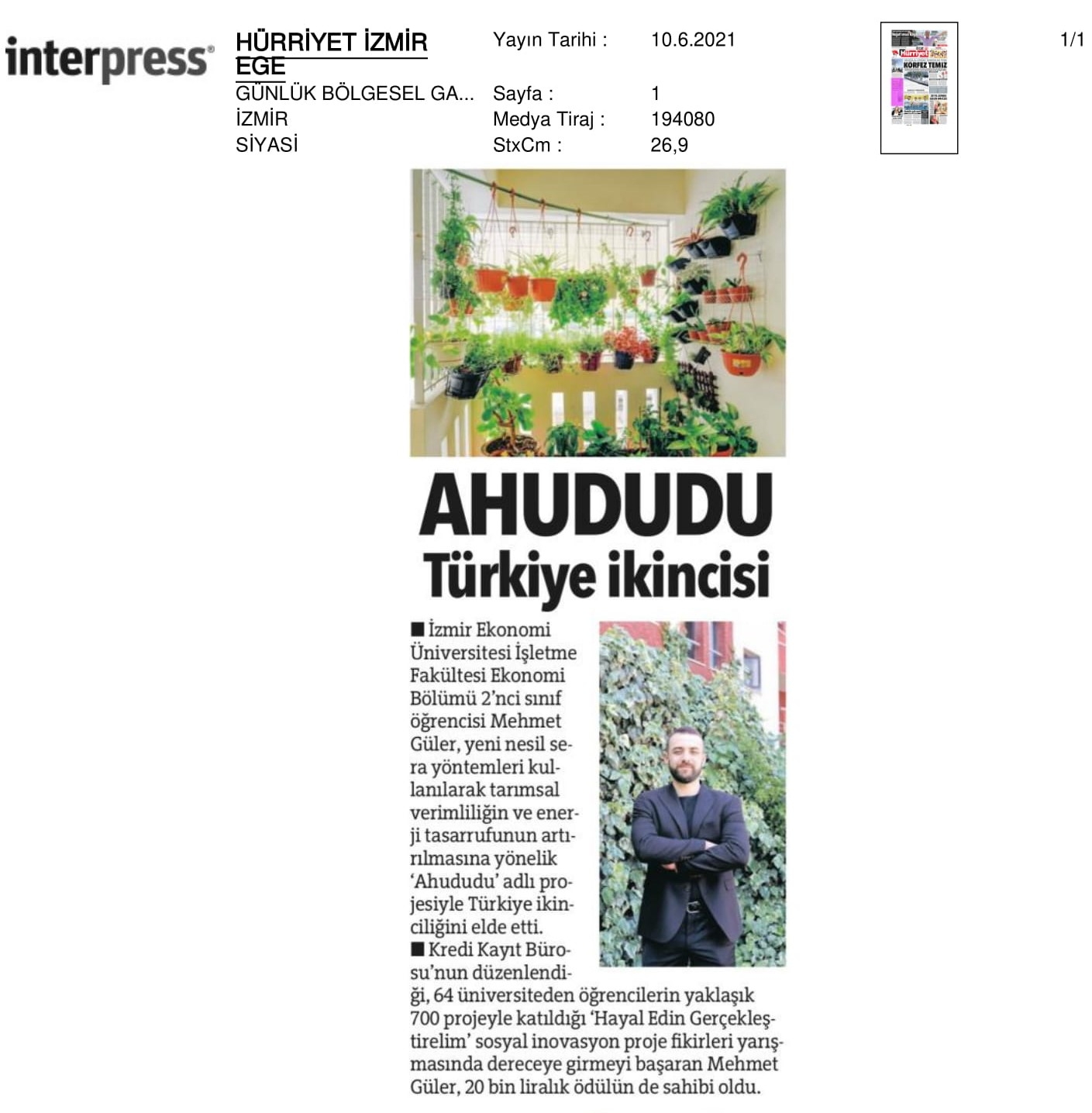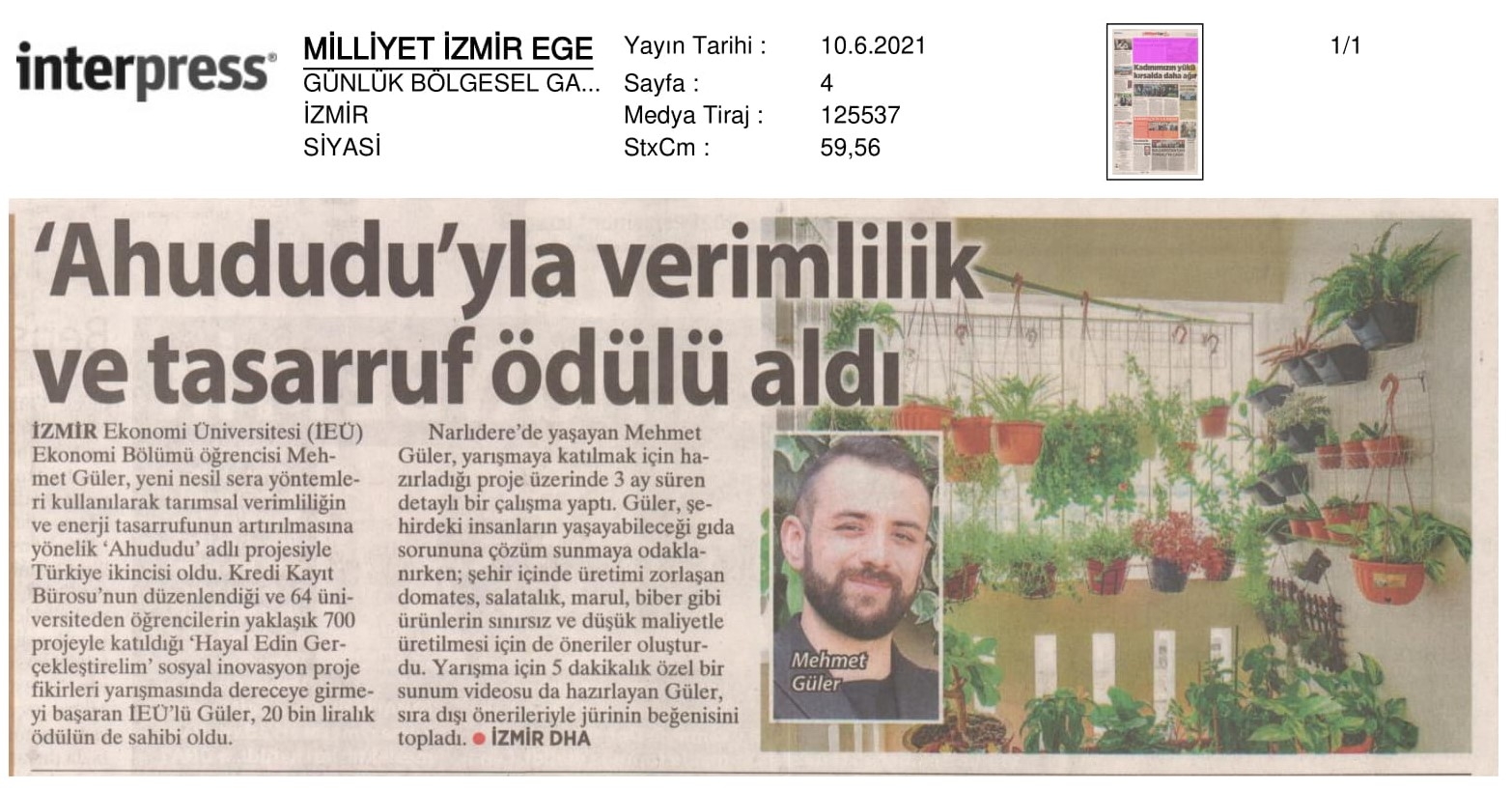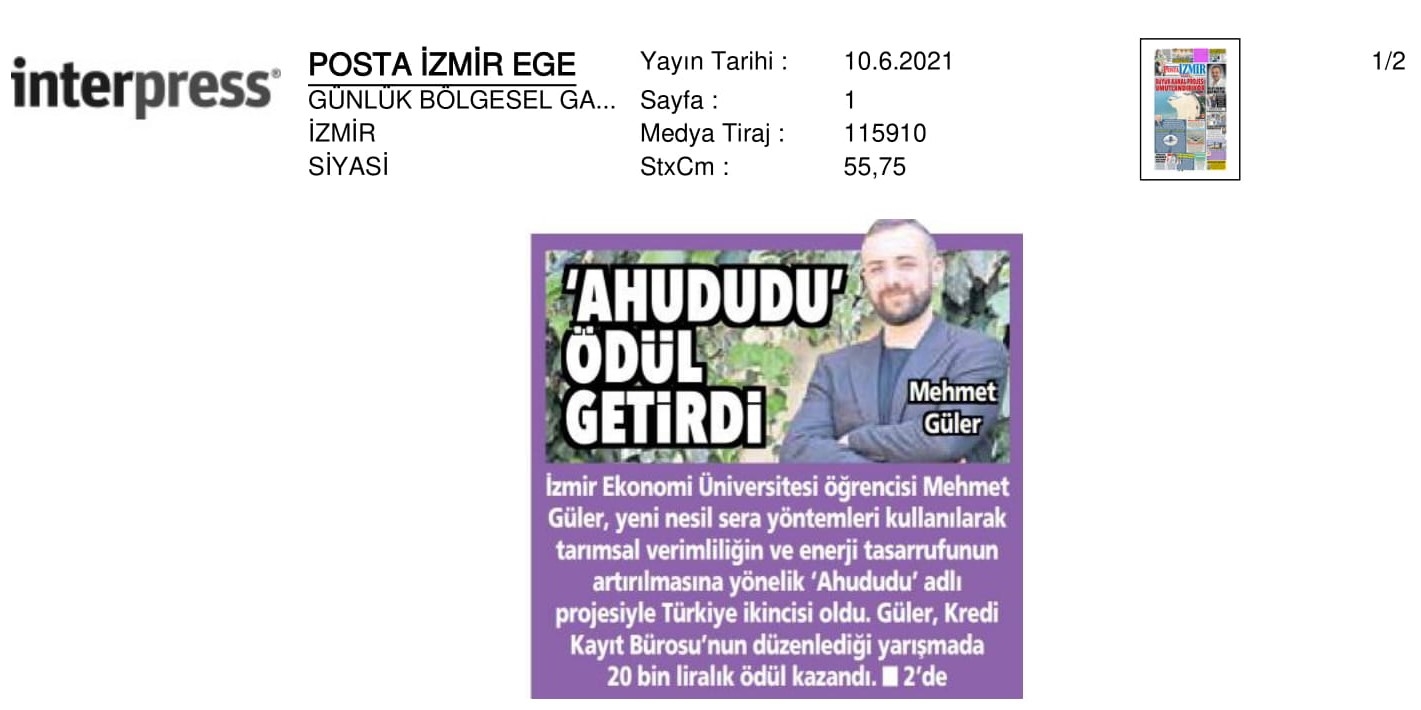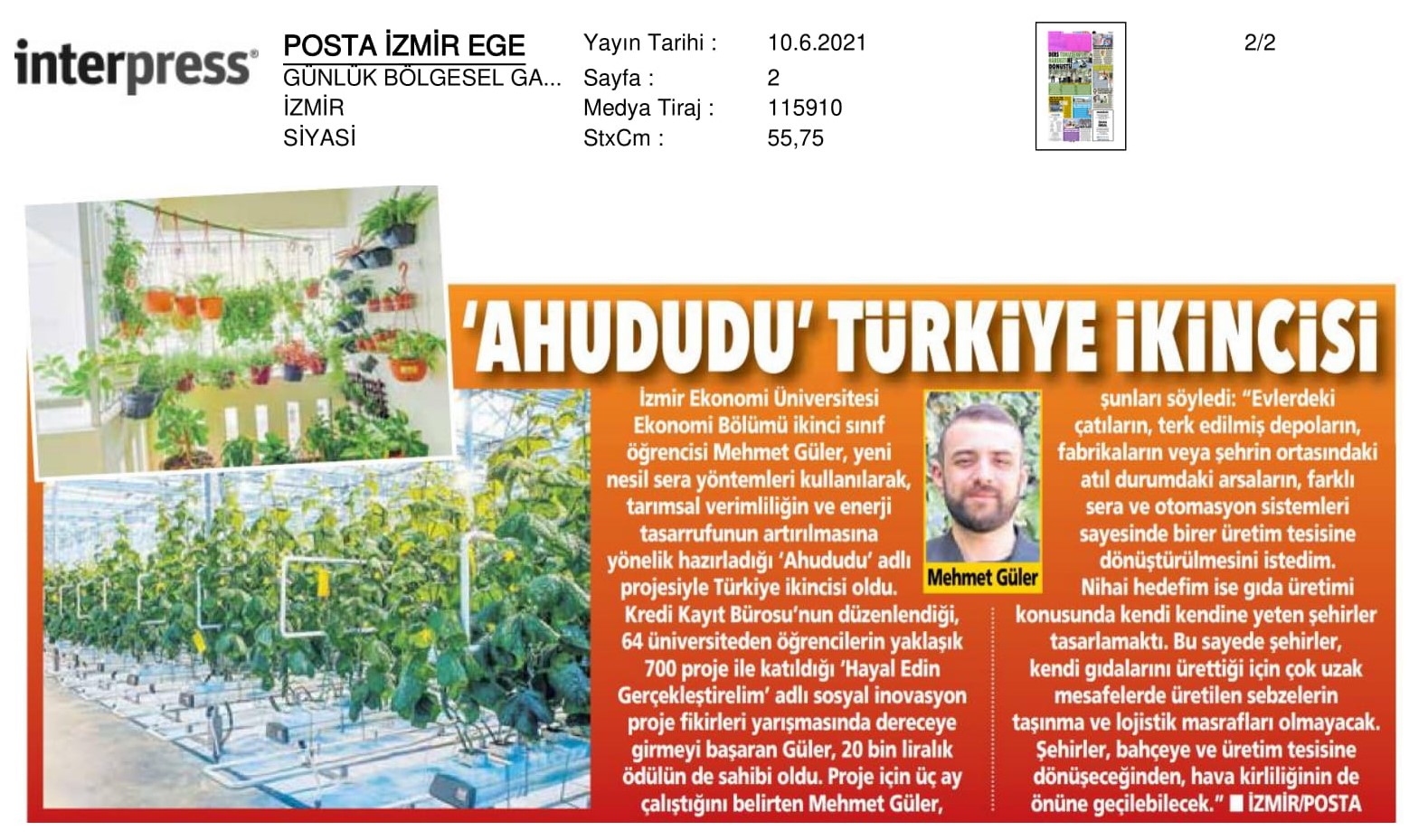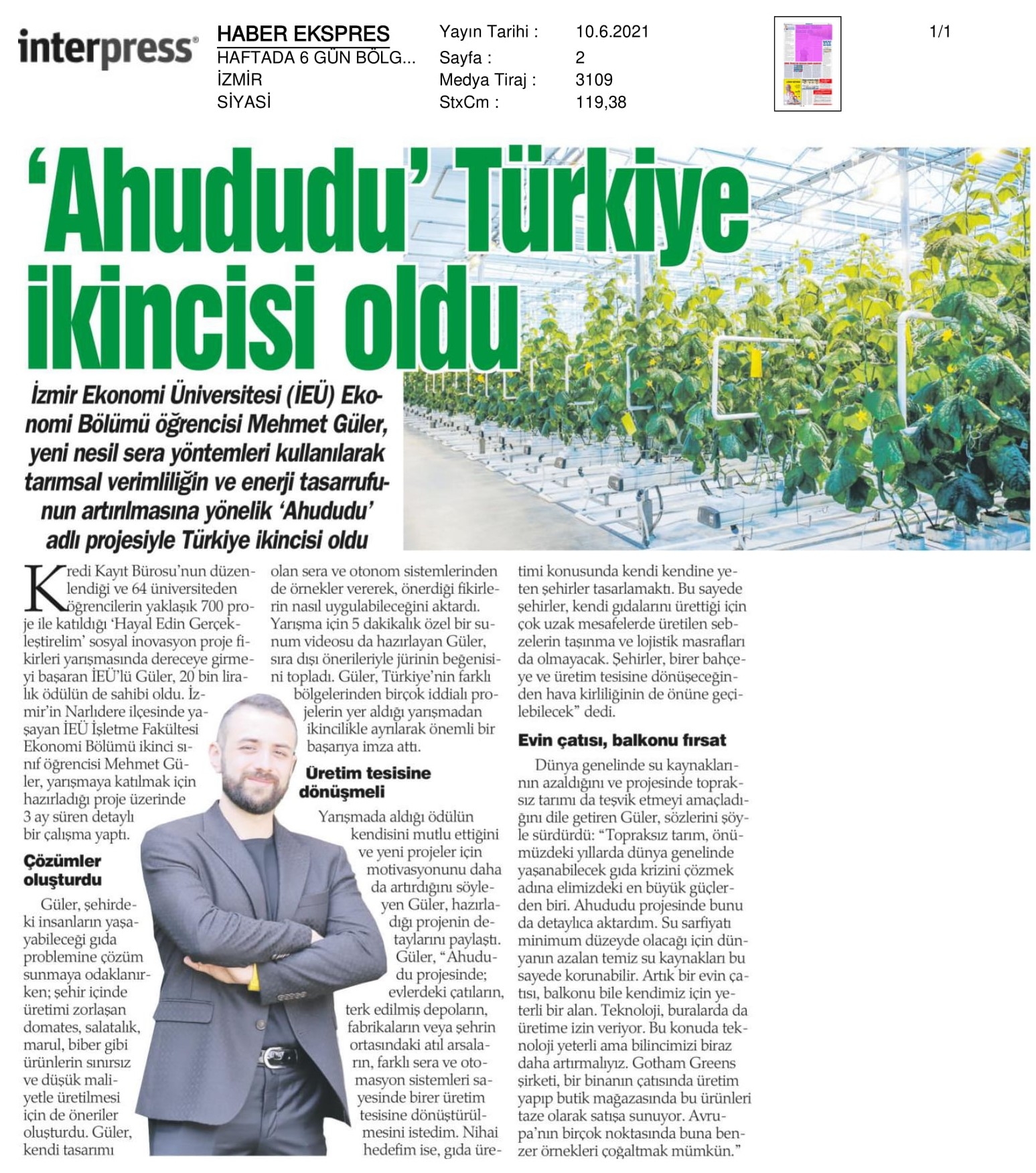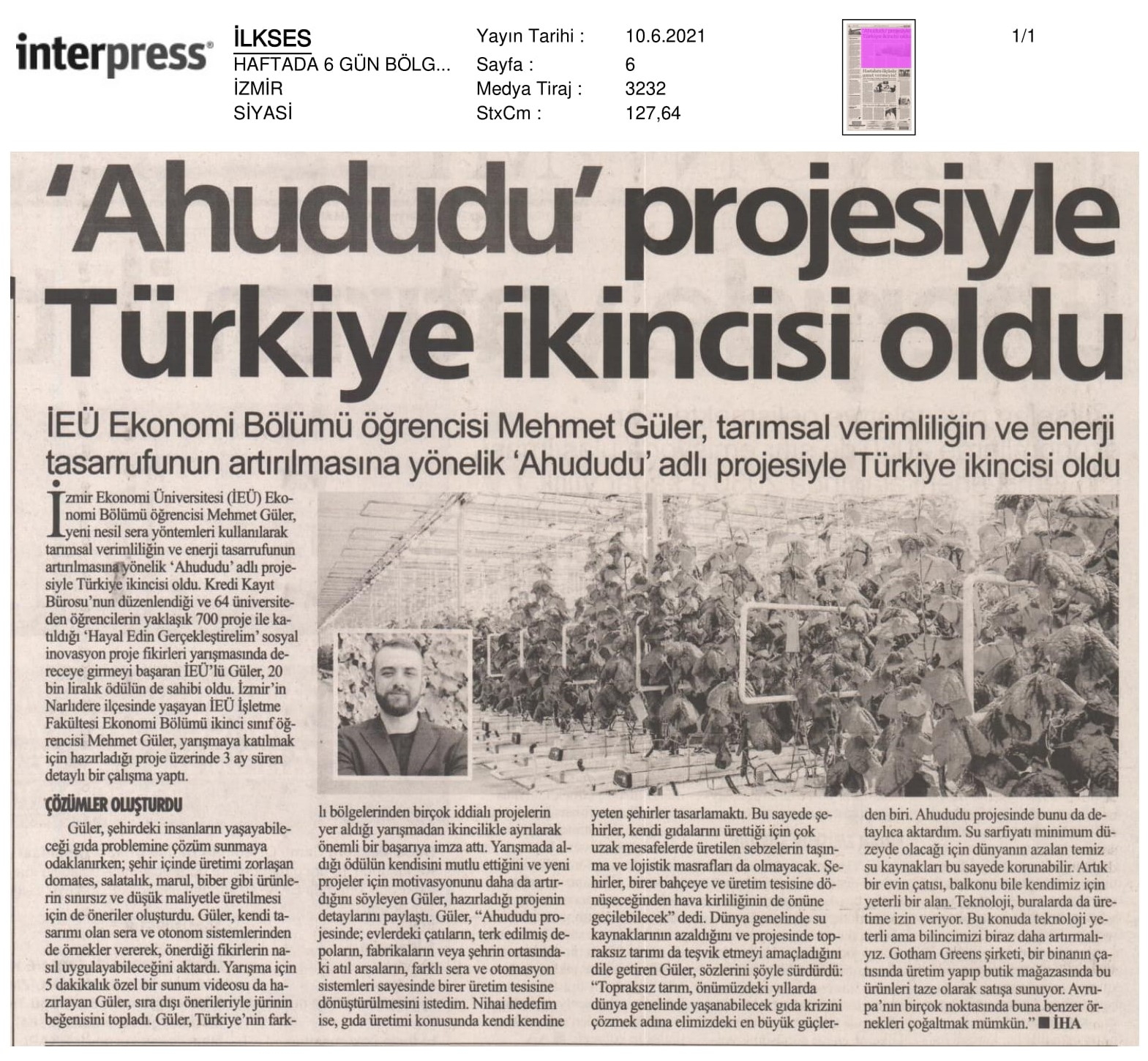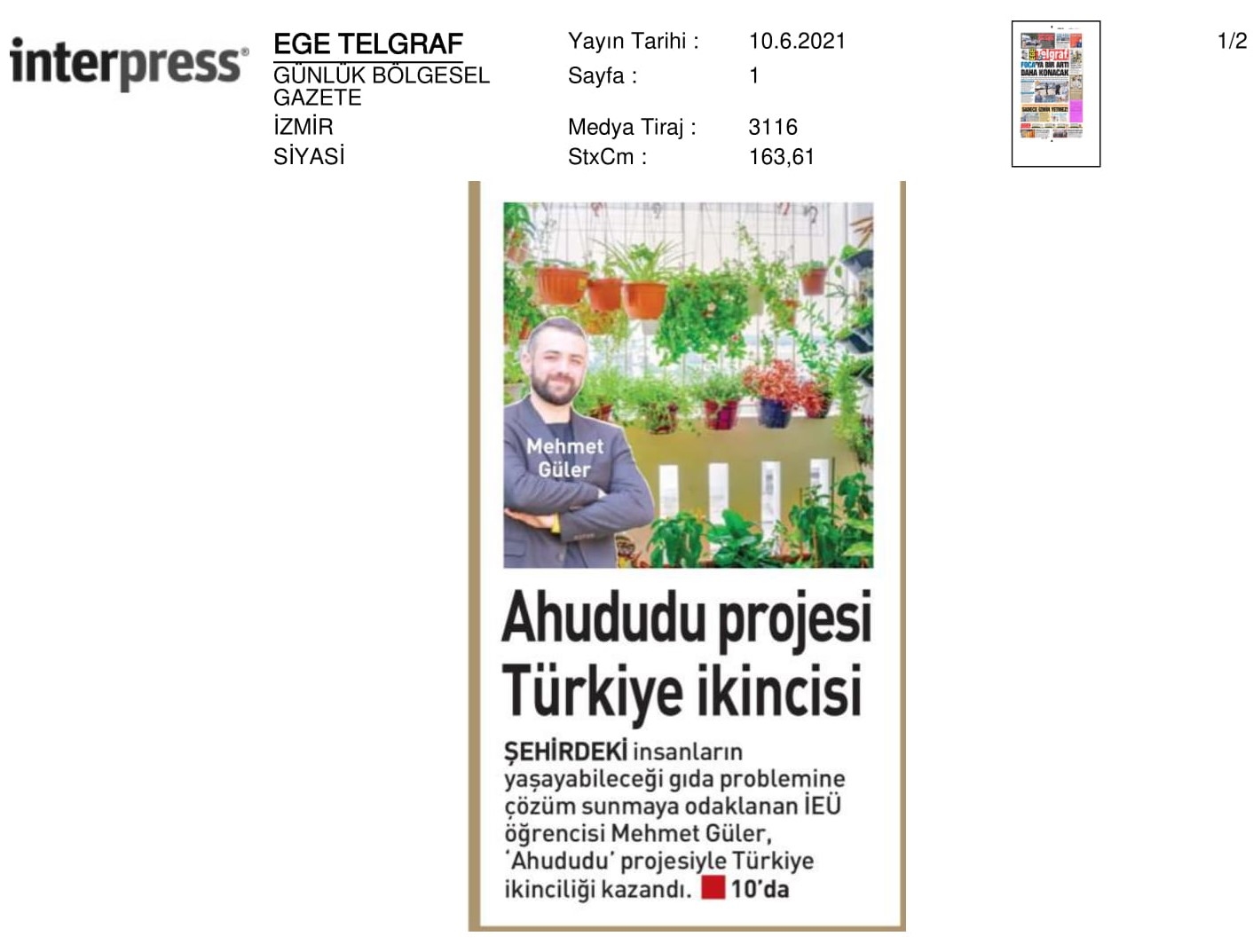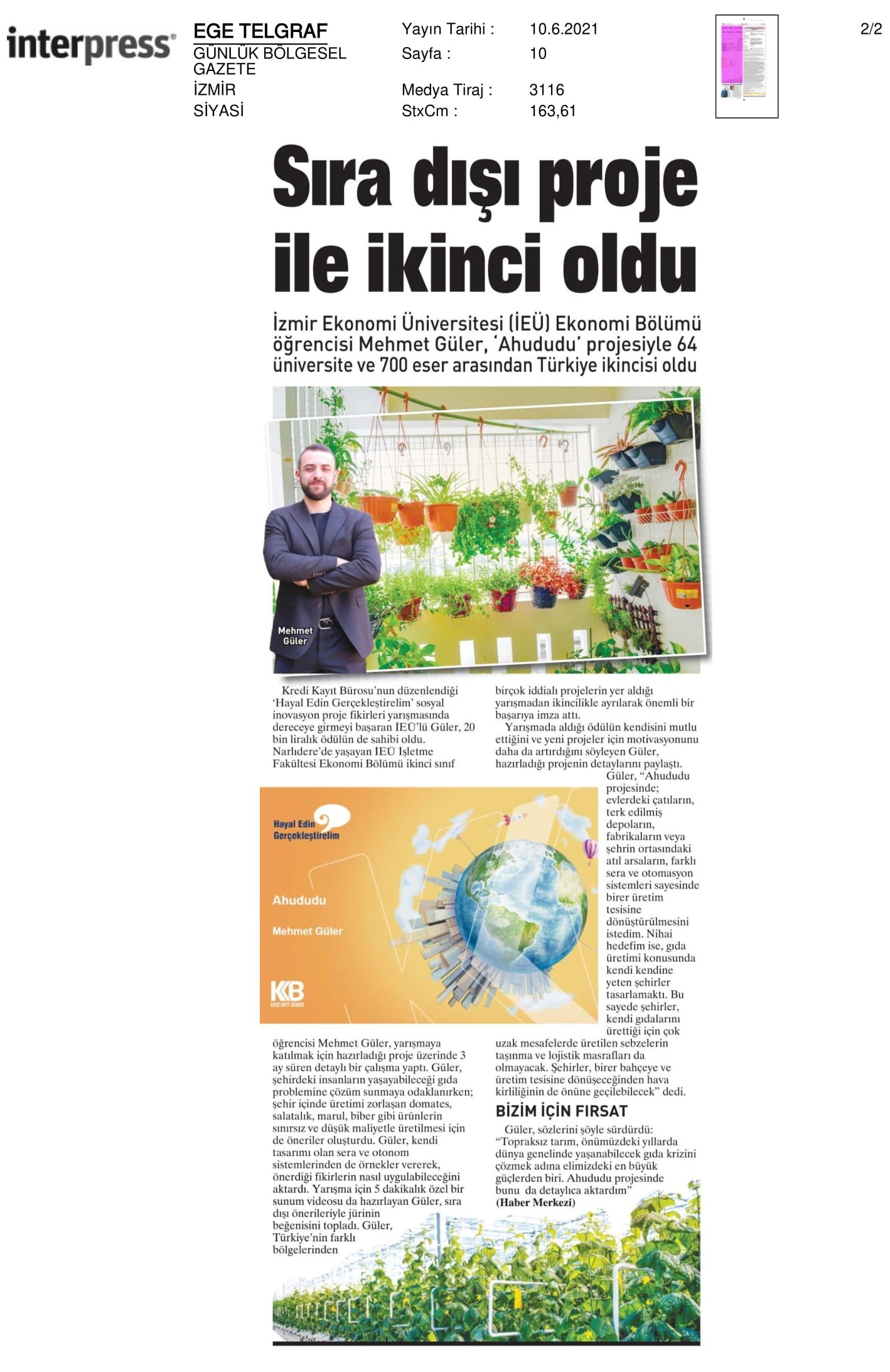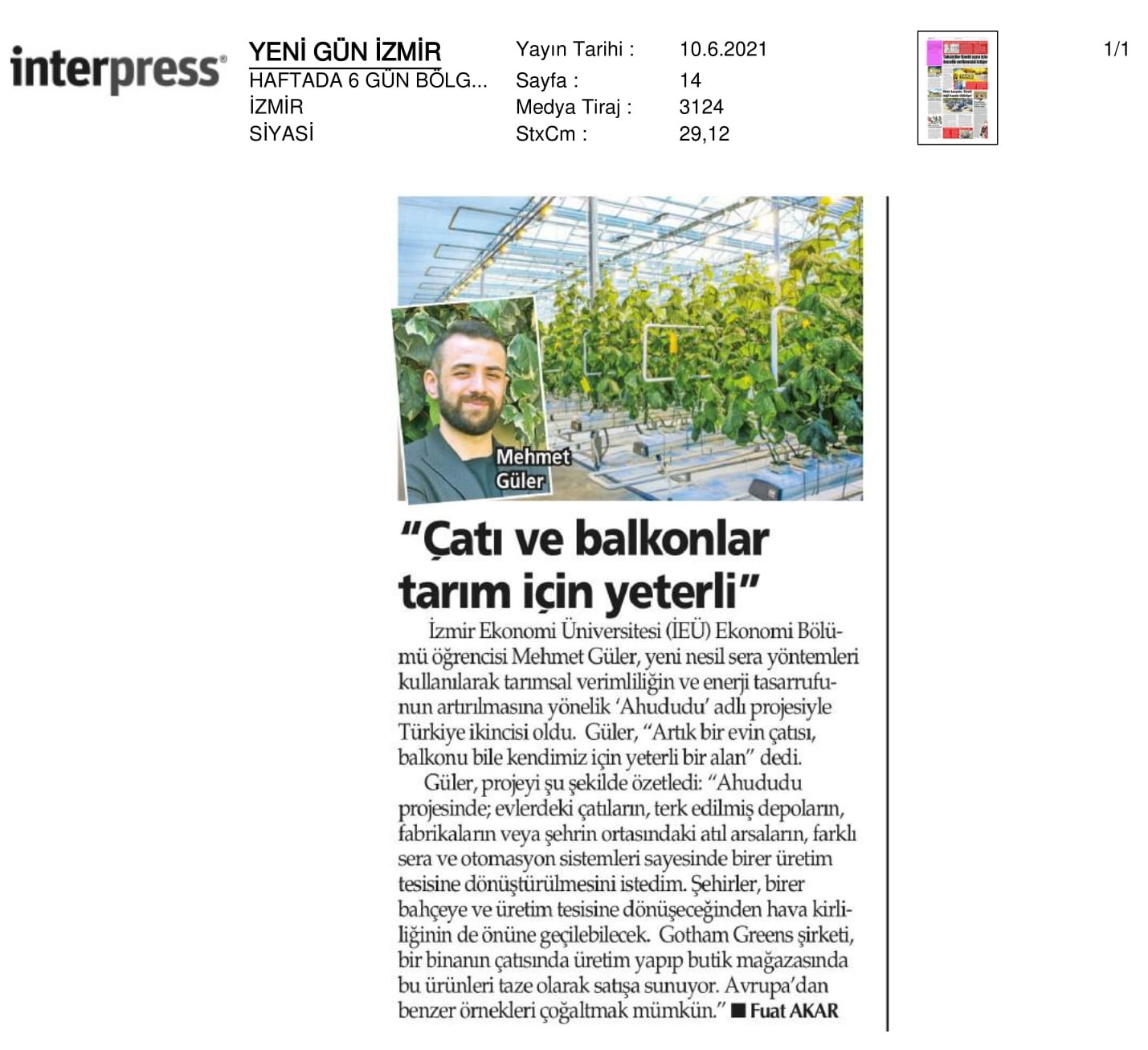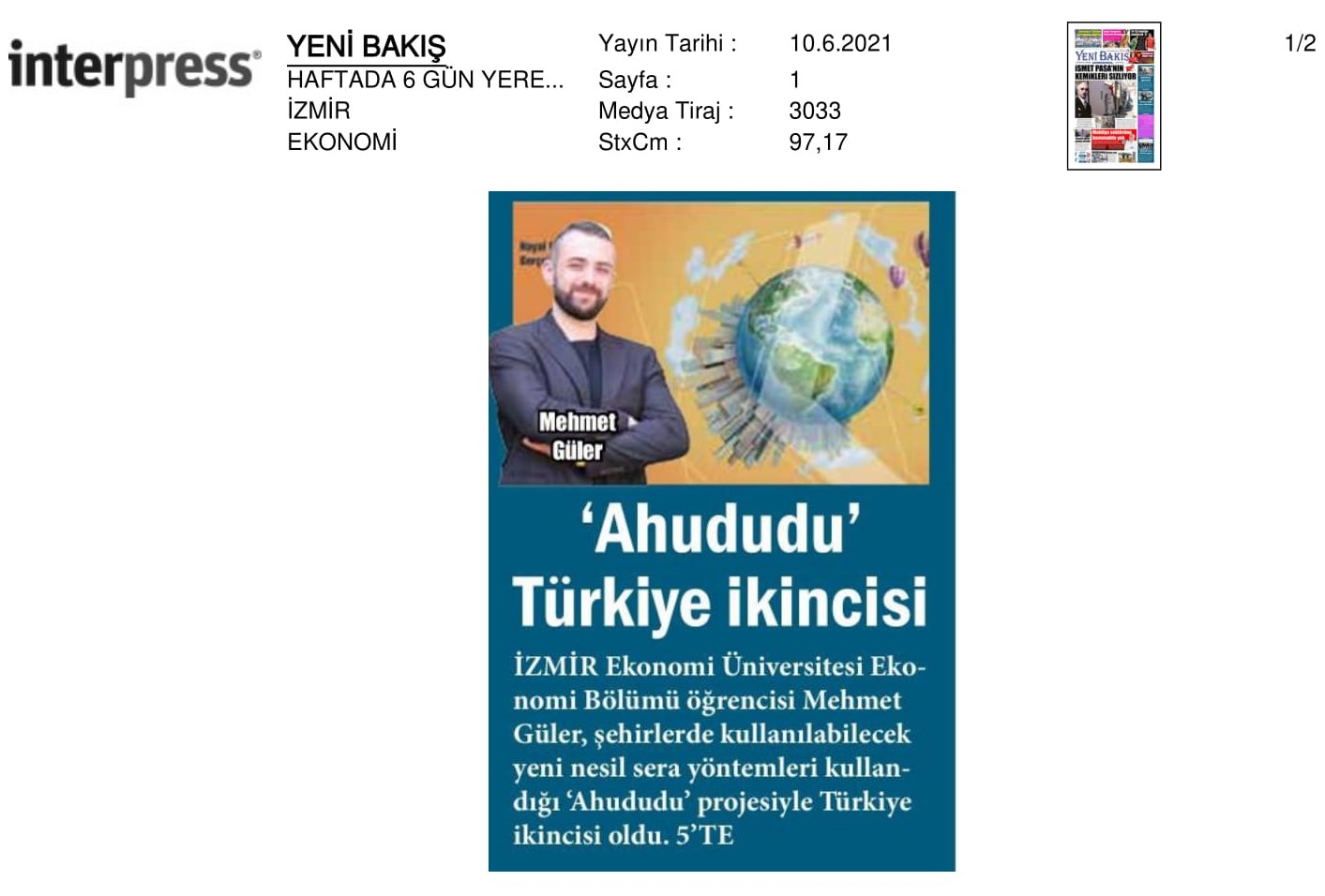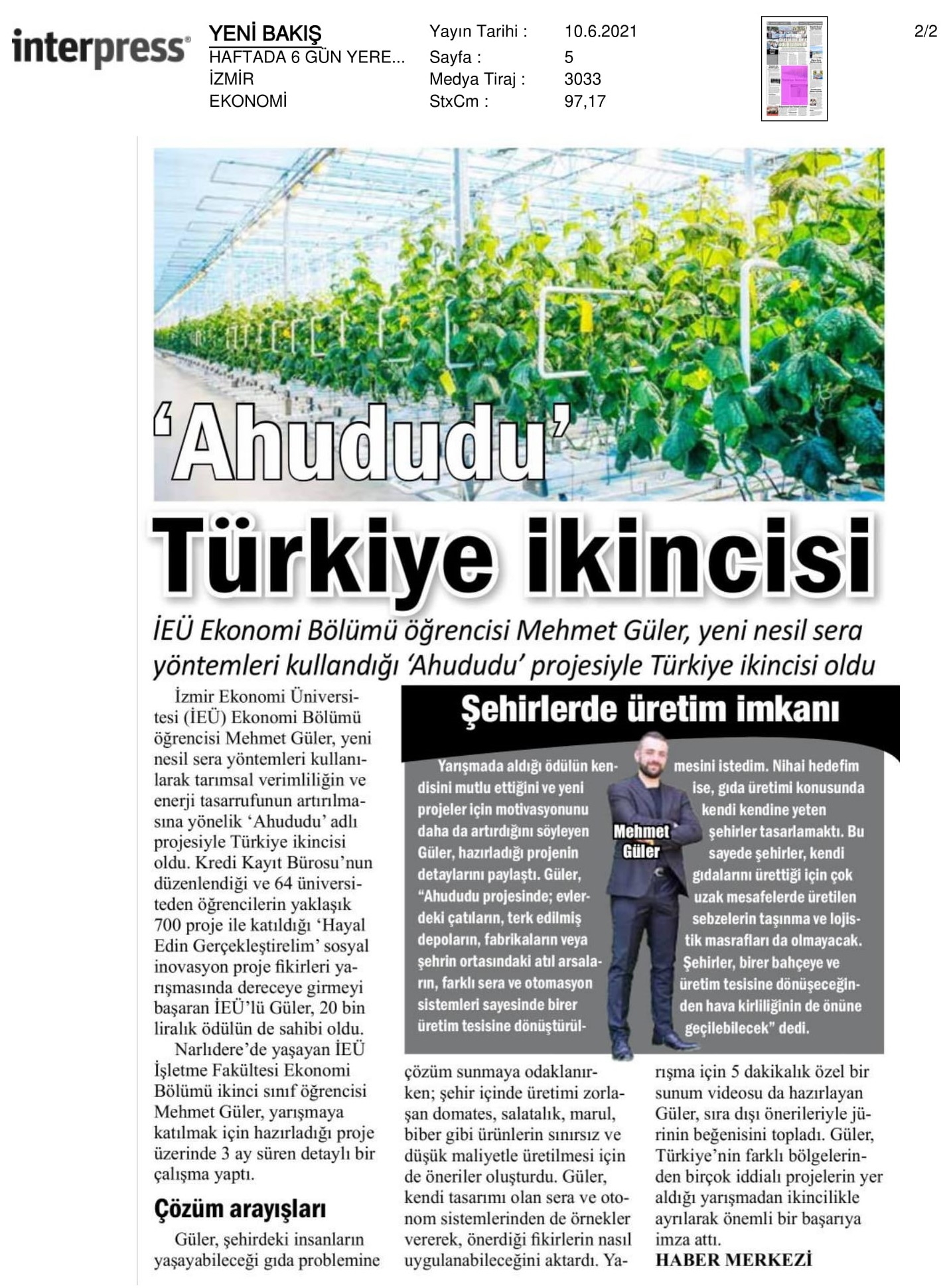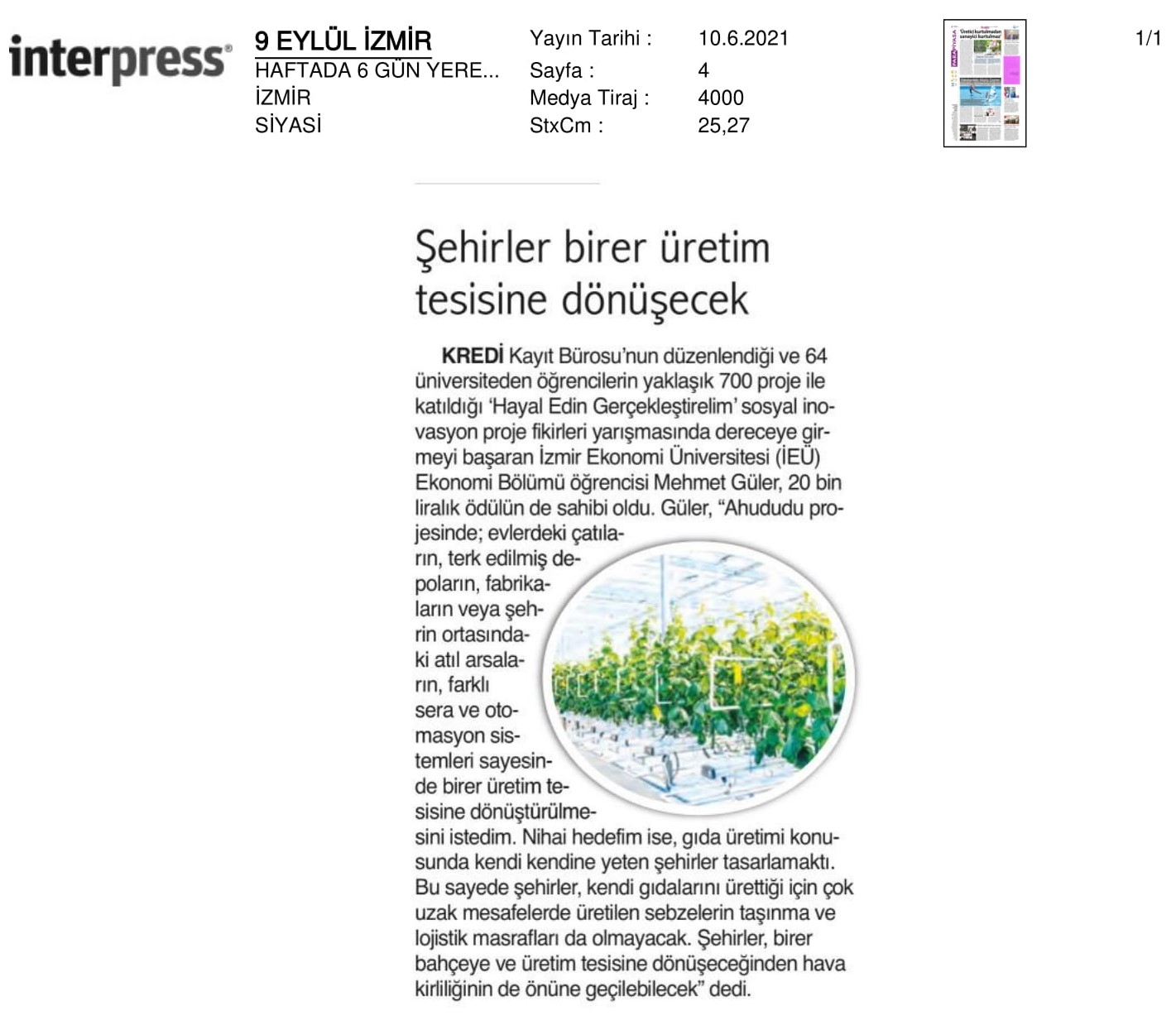'Raspberry' ranks second in Turkey
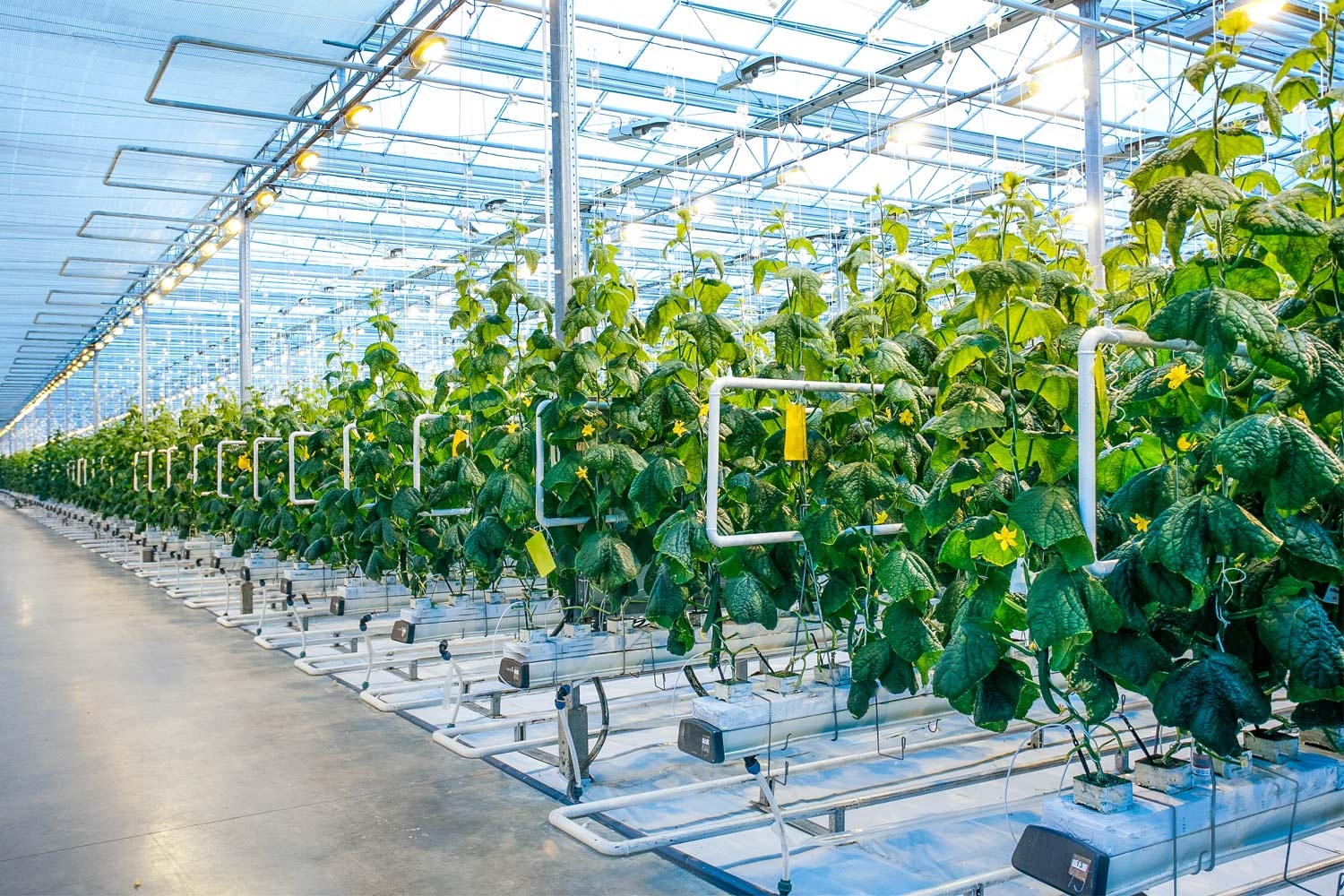
Izmir University of Economics (IUE) Department of Economics student Mehmet Güler came in second in Turkey with his project called 'Raspberry' aimed at increasing agricultural efficiency and energy saving by using new generation greenhouse methods. Güler, who succeeded to rank in the ‘Hayal Edin Gerçekleştirelim’ social innovation project ideas competition, which was organized by the Credit Bureau and students from 64 universities participated with approximately 700 projects, was also awarded a prize of 20 thousand liras.
Mehmet Güler, a sophomore student at IUE Department of Economics, Faculty of Business, who lives in the Narlıdere district of Izmir, conducted a detailed study on the project he prepared to participate in the competition, which lasted for 3 months.
SOLUTIONS WERE CREATED
While Güler focused on providing solutions to the food problem that people in the city may experience; he also made suggestions for the unlimited and low-cost production of products such as tomatoes, cucumbers, lettuce, and peppers, which are difficult to produce in the city. Güler also gave examples of the greenhouse and autonomous systems of his own design and conveyed how the ideas he proposed could be implemented. Güler, who also prepared a special 5-minute presentation video for the competition, was appreciated by the jury with his extraordinary suggestions. Güler achieved an important success in the competition in which many ambitious projects from different regions of Turkey took place.
CITIES MUST TURN INTO 'PRODUCTION FACILITIES'
Stating that the award he received in the competition made him happy and increased his motivation for new projects, Güler shared the details of the project he prepared. Güler said, “In the Raspberry project, I wanted the roofs of the houses, the abandoned warehouses, the factories or the idle lands in the middle of the city to be transformed into production facilities thanks to different greenhouses and automation systems. My ultimate goal was to design cities that are self-sufficient for food production. In this way, since cities produce their own food, there will be no transportation and logistics costs of vegetables produced over long distances. As cities will turn into gardens and production facilities, air pollution will be prevented.”
THE ROOF AND BALCONY OF THE HOUSE IS ALSO OPPORTUNITY FOR US
Stating that water resources are decreasing worldwide and that he aims to encourage soilless agriculture in his project, Güler continued as follows: “Soilless agriculture is one of the greatest forces we have to solve the food crisis that may be experienced around the world in the coming years. I explained this in detail in the Raspberry project. Since the water consumption will be at a minimum level, the world's decreasing clean water resources can be protected in this way. Even the roof and balcony of a house is enough space for us now. Technology allows production here too. Technology is sufficient in this regard, but we need to increase our awareness a little more. Gotham Greens company produces these products on the roof of a building and sells these products fresh in its boutique store. It is possible to give similar examples in many parts of Europe.”



